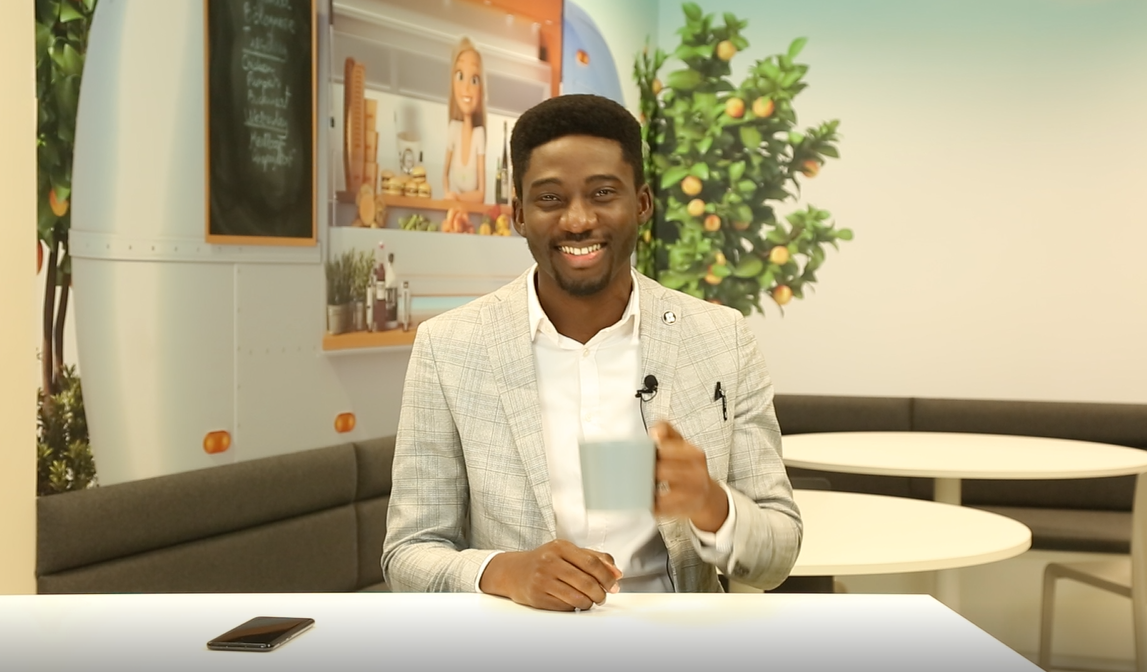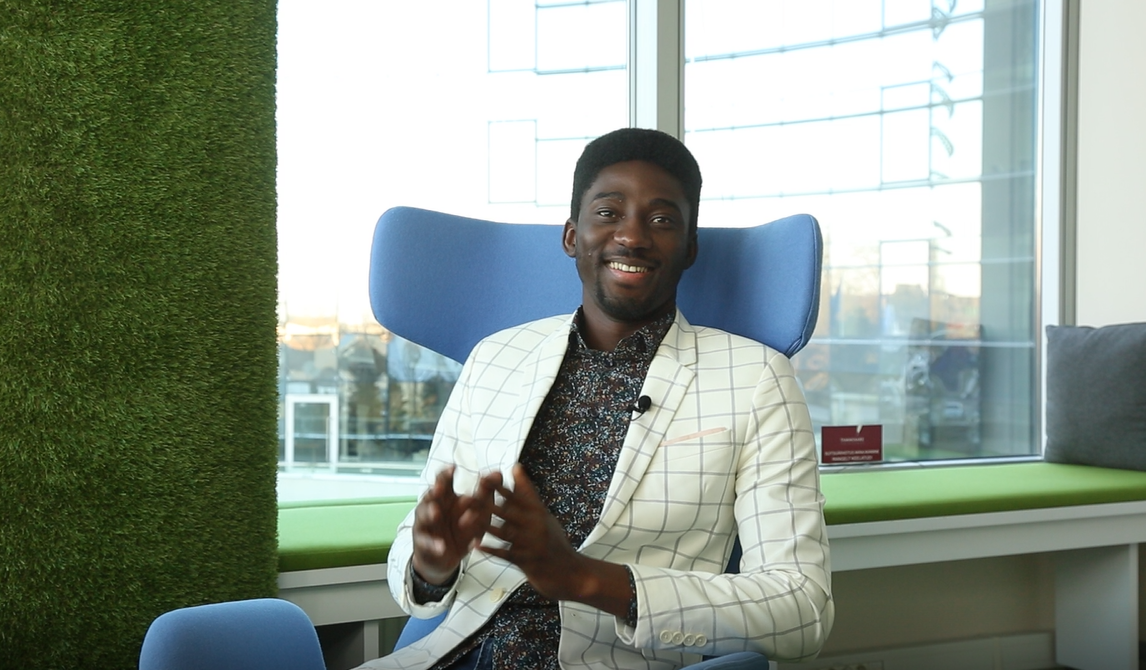From Academia to Industry: Adetola Temiloluwa Paul on Communication Management, Career Growth, and Key Lessons from BFM
Adetola Temiloluwa Paul graduated cum laude in 2016. He works at Bondora Capital OÜ as Investor Relations Manager.

Specialty and year of graduation. What sparked your interest in Communication Management?
I graduated with MA degree in Communication Management, in June 2016. From a young age, I envisioned myself working in a leadership role at a multinational corporation. As I observed the business world more closely, one thing became crystal clear: communication is not just a soft skill—it’s a strategic tool that sets great managers apart. What truly sparked my interest in Communication Management was realizing how powerful communication is in shaping perception, driving collaboration, and influencing human behavior. The idea that the right message, delivered in the right way, can shift perspectives and inspire action fascinated me. That curiosity quickly evolved into a passion, and ultimately led me to pursue a Master’s in the field.
What is your current role, and what does it entail?
I currently serve as the Investor Relations Manager at Bondora Capital OÜ, a FinTech company that’s redefining the way people interact with financial products. In this role, I lead a fantastic team of Investor Relations Associates who provide day-to-day support to our investors—ensuring they feel informed, valued, and confident in in their roles. A large part of my responsibility is not limited to crafting clear, timely, and transparent communication, both externally with investors and internally with my team, but also with stakeholders across the company.
My degree in Communication Management has been an absolute game-changer. It gave me a strong foundation in strategic communication, stakeholder engagement, and crisis communication—skills I use almost daily. Beyond external relations, it’s also helped me become a more thoughtful team leader. Understanding team dynamics, managing expectations, and fostering open, productive dialogue are all rooted in the communication principles I studied during my Master’s. It’s one thing to manage; it’s another to communicate in a way that empowers and connects—and that’s where the degree really shines.
Could you share some details about your master's thesis? We would love to hear about the topic, key findings, and what made it stand out for honors!
Absolutely! My master’s thesis was titled “Socio-Linguistic Landscape in the Old Town of Tallinn: A Foreign Student’s Perspective.” The idea was born out of my own experience as an international student navigating a new city. When I first arrived in Tallinn, I quickly realized how much I relied on public signage—not just for direction, but for making sense of my environment. That curiosity led me to explore whether these signs were as intuitive and accessible for other foreign students as they were for me.
My research focused on the linguistic landscape of Tallinn’s Old Town, specifically examining how effectively the public signage communicates to non-native residents. What stood out in my findings was how intentional—or sometimes unintentional—sociolinguistic elements like language visibility, script combinations, code preferences, and multilingual layering actually help foreign students decode messages at first glance. In short, the signs told more than just directions—they reflected inclusivity, cultural nuance, and social priorities.
I believe the thesis stood out for honors not just because of its timely relevance—especially given the rise in international students—but also because it bridged lived experience with academic inquiry. It offered practical insights into how cities like Tallinn can be more linguistically welcoming, and how communication plays a subtle yet powerful role in integration.

Which professional achievement or initiative are you most proud of?
One achievement that truly gives me a deep sense of fulfillment is completing my master’s research. It was a timely and underexplored topic that ended up contributing valuable insights to the field of sociolinguistics. Knowing that my work shed light on how Tallinn’s linguistic landscape impacts international students—especially at a time when their presence in the city was growing—is something I’m genuinely grateful for.
What’s even more humbling is seeing my thesis being referenced by scholars from different parts of the world. Every time I get a notification from academia.edu, it reminds me that the effort, sleepless nights, and countless hours of analysis were worth it.
I honestly give all credit to God for His grace, wisdom, and strength throughout that journey. Without Him, I wouldn’t have been able to pull it off. I am also incredibly thankful for the supervisor I was blessed with (Professor Anastassia Zabrodskaja), the head of the MA program— who offered not only guidance, but also genuine support and encouragement when I needed it most. It was a collaborative and faith-filled experience that I’ll always hold dear.
What is something about you that would surprise people to know?
Most people know me in a professional or academic context, so they’re often surprised to learn that I’m also a Music Director at my local church—Redeemed Christian Church of God, Laki 19, here in Tallinn. Music has been a part of my life for as long as I can remember—it runs in the family and has always been a meaningful outlet for Worship and creativity.
Outside of work, you’ll often find me doing music-related activities, either from home, studio or in church. I even run a YouTube channel where I share piano instrumentals with scriptures designed for study, meditation, prayer, or just unwinding. It's my way of creating peaceful, intentional spiritual soundscapes for people to connect with.
One of my most joyful musical moments was releasing two gospel tracks with my wife—including full music videos shot right here in Tallinn. It was a beautiful blend of faith, creativity, and teamwork, and I truly hope the songs bless everyone who listens.
A knowledge/lesson that I picked up at BFM and keep in mind on a daily basis (could be at work or in my personal life):
One of the most valuable lessons I took away from BFM was the understanding that language and communication codes can vary significantly across cultures. It might sound simple on the surface, but this concept completely reshaped how I approach conversations—both at work and in everyday life.
It taught me that people may express themselves differently, not because they’re being difficult or vague, but because their cultural communication style is just wired differently. This awareness has helped me become more patient, more open-minded, and more intentional in how I listen and respond—especially in a diverse work environment like mine.
Whether I’m engaging with investors, collaborating with colleagues, or leading my team, I often find myself drawing on this insight. It reminds me to look beyond the words and consider the context, which makes communication more meaningful and effective. It’s a lesson I carry with me every day.
One piece of advice for future and current BFM Communication Management MA students:
My advice? Never underestimate the value of what you're learning. It might not always be obvious in the moment, but the knowledge, skills, and even the research you’re doing have the potential to make real, positive impacts—often in places you least expect. Follow your vision through to the end, even when it feels tough or uncertain.
If you ever get the chance to attend Eurocampus, take it with both hands. It’s an incredibly rich experience—academically, socially, and personally. You’ll not only broaden your understanding of communication across cultures, but also build a network of like-minded peers that could shape your journey far beyond graduation.
Above all, don’t settle for less. Keep your vision front and center, stay open to new perspectives, and trust the process. You’re more capable than you know—and the world needs what you bring to the table. Shine on!